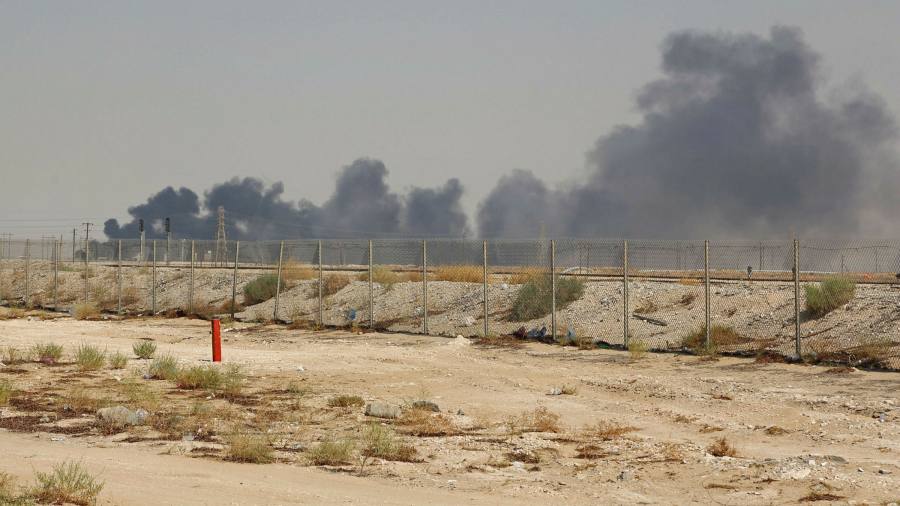War drums are pounding in Europe but there appears to be a modest outbreak of pragmatism across the Middle East, the arena of at least one war a decade since the defeat of fascism in the second world war.
Of course, fighting continues in Syria’s civil war, Yemen’s disastrous conflict and, sporadically, in Iraq and Libya. Arab citizens who just over a decade ago were swept up in a wave of euphoria as they challenged dynastic despots and dared to dream they could finally leave the past behind are not, for the most part, in a good place.
Autocracy has made a comeback. The collapse of state institutions has uncovered the hardwiring and subconscious grammar of sectarian affiliation. Proxy wars between Shia and Sunni Muslims, abetted by Iran and Saudi Arabia, are a gift to jihadi extremism and lethally imperil the region’s minorities, from Christians to Druze to Yazidis.
Yet regional actors who have been at each other’s throats for the past decade and more are slowly easing into tentative partnerships. There are two main reasons: Iran and the US — and the tantalising possibility of a nuclear deal in coming weeks, after which President Joe Biden’s attention will turn elsewhere.
First, there is an attempt to refloat the Joint Comprehensive Plan of Action. This was the uncertain deal Iran signed with the US and five other world powers — France, Germany, the UK, China and Russia — in 2015, to place internationally verified restraints on its nuclear programme in exchange for the lifting of economic sanctions and Iran’s re-entry into the global market. The JCPOA worked, albeit somewhat to Tehran’s disadvantage since the US Treasury used sanctions on other aspects of its regional behaviour to limit severely its access to the dollar-dominated global financial system.
But Donald Trump torpedoed that deal by withdrawing the US in 2018 when he was president. Iran waited a year before abrogating its own obligations, and increasing uranium enrichment towards nuclear bomb grade. Trump mounted his campaign of “maximum pressure” against Tehran, piling on new sanctions and inciting Gulf Arabs to stage a jihad against Shia and Persian Iran. But in September 2019, when Iran attacked the heart of Saudi Aramco’s oil installations with a drone and missile attack, Trump did not act, saying it was Saudis not Americans who were targeted.
That was a turning point in the modern history of the Middle East.
It shook Washington’s traditional allies in the region, Saudi Arabia first and foremost, but also Israel, the United Arab Emirates and Turkey, a Nato ally. That gradually led to efforts to de-escalate intraregional squabbling. The Saudi-UAE-led embargo against Qatar, the maverick oil-rich Gulf emirate they accused of cosiness with Iran and backing Islamist attempts at regime change in the Gulf, ended last year. Qatar hosts the biggest US air base in the wider Middle East.
But now the assumption is growing that the US and Iran are about to resurrect the JCPOA — at five minutes to midnight. Iran is still holding out for concessions that Biden cannot deliver, but with wriggle room. The Iranian foreign minister, in an interview with the FT, suggested a statement by US Congress or its leaders that a new deal would not be torn up in future by Washington, would help things along.
Any fresh deal would be less valuable than the 2015 JCPOA, for the simple reason that Tehran now has technology and techniques it did not have then. Iran’s neighbours are acting as if this will be so, and that a new accord will not act against Iran’s sphere of Shia Arab influence, especially across the Levant: in Iraq, Syria and Lebanon.
Pragmatic movement is therefore under way. Turkey’s President Tayyip Erdogan, long on the Islamist side of the regional contest against Egypt and the Gulf, was in the UAE this week and plans soon to visit Saudi Arabia, and is also mending fences with Egypt and Israel (Isaac Herzog, the Israeli president recently on a historic visit to the UAE, is shortly due in Turkey after a long rift). Gulf countries led by the UAE want the business of reconstructing Syria, while Saudi Arabia has used diplomatic wiles to woo Shia-majority Iraq after decades of ignoring it.
All these actors are attentive to the ambitions of Russia — the dubiously lucky master of Syria since 2015 — and especially China, with its technology and Belt and Road Initiative encompassing the region. They are downgrading the historic alliance with the US and diversifying.
They are exploring how to deal with each other pragmatically, through trade, investment and diplomacy.
Oddly, the region is starting to resemble what Biden’s then boss, Barack Obama, wanted in 2015. We need, Obama said, to “say to our friends as well as to the Iranians that they need to find an effective way to share the neighbourhood and institute some sort of cold peace”.
By: David Gardner
Source: FT



